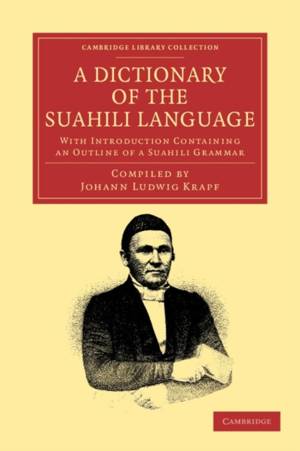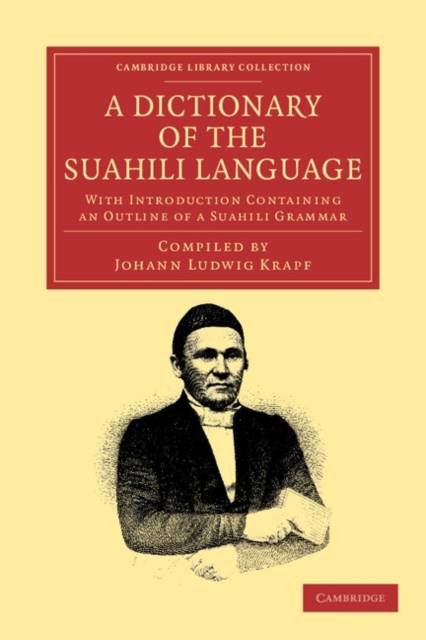
- Afhalen na 1 uur in een winkel met voorraad
- Gratis thuislevering in België vanaf € 30
- Ruim aanbod met 7 miljoen producten
- Afhalen na 1 uur in een winkel met voorraad
- Gratis thuislevering in België vanaf € 30
- Ruim aanbod met 7 miljoen producten
Zoeken
A Dictionary of the Suahili Language
With Introduction Containing an Outline of a Suahili Grammar
€ 99,95
+ 199 punten
Omschrijving
Johan Ludwig Krapf (1810-81), a German-born member of the Church Missionary Society in East Africa, is regarded as the founder of Swahili studies in Europe. Having pursued an interest in Oriental culture from an early age, he first went to Abyssinia (Ethiopia) as a missionary. During his travels in Africa, he became the first European to see Mount Kenya; but he also considered the potential of Swahili as a lingua franca. Krapf published the first printed text in Swahili, and the first systematic Swahili grammar, as well as being the first to bring Swahili manuscripts to Europe. Another in a series of firsts is this lexicon, which was published posthumously in 1882. The Swahili dictionary, pioneering as it was in its day, is still of historical interest, especially because it contains notes on Swahili culture and customs, as well as an outline of the language's grammar.
Specificaties
Betrokkenen
- Uitgeverij:
Inhoud
- Aantal bladzijden:
- 480
- Taal:
- Engels
- Reeks:
Eigenschappen
- Productcode (EAN):
- 9781108047036
- Verschijningsdatum:
- 26/04/2012
- Uitvoering:
- Paperback
- Formaat:
- Trade paperback (VS)
- Afmetingen:
- 152 mm x 229 mm
- Gewicht:
- 698 g

Alleen bij Standaard Boekhandel
+ 199 punten op je klantenkaart van Standaard Boekhandel
Beoordelingen
We publiceren alleen reviews die voldoen aan de voorwaarden voor reviews. Bekijk onze voorwaarden voor reviews.










